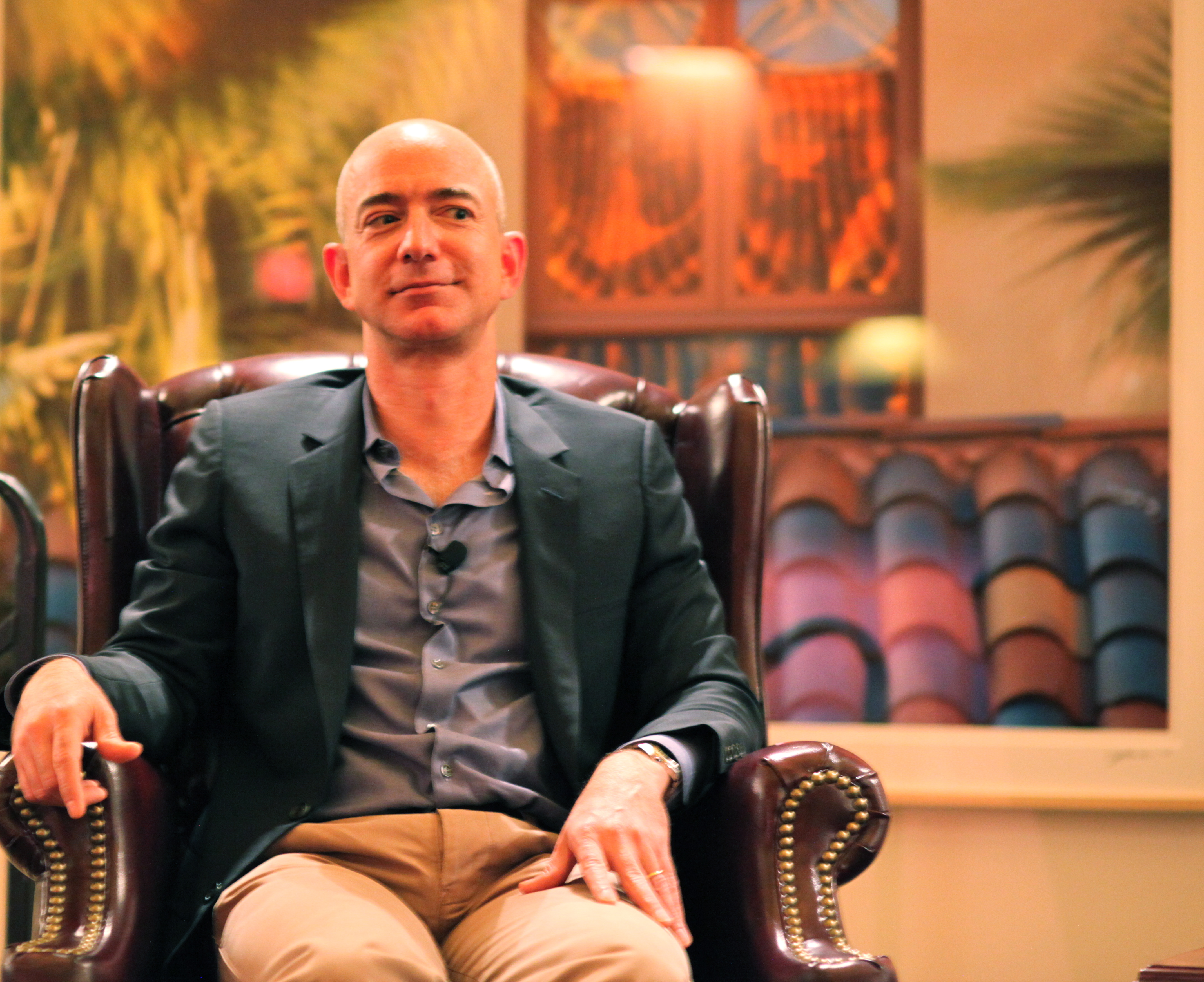
I have been waiting to see the piece that recently appeared in the New York Times by Jodi Kantor and David Streitfeld. It’s a doozie. The reporters interviewed a number of former Amazon employees, who paint a picture of a workplace out of a dystopian movie. The workload is unbearable, people cry at their desks (and this isn’t algebra!), the culture invites rudeness and hypercritical remarks, and anyone who doesn’t succeed (in part by destroying other people) get shown to the door. We have already heard before about how Amazon treats its warehouse employees, but now it’s the white-collar staff that are the victims. Add this to Amazon’s ruthless trading practices (do you know any publisher that is not intimidated by Amazon’s power?) and you have a picture of a rogue company. Successful, you bet; growing, to be sure; innovative, of course; but is this the future of work?
The Internet conversation about the piece in the Times is proceeding as expected, with people taking all sides of the argument. Interestingly, Jeff Bezos felt obliged to issue a memo to the staff in which he says he doesn’t recognize the company described in the Times piece (you can see the entire memo here).
Bezos’s statement was promptly satirized in a hilarious piece by Andy Borowitz, which you really must read. Borowitz’s conceit is that Amazon mandates that anyone who is not acting compassionately to their fellow employees will be fired the next day.
And then there is a thoughtful piece at Pando, which insists that we will soon be forced to choose between the hard-charging culture of the tech industry and the more humanistic values that we may privately prefer. I don’t know if we have to choose — I don’t know if we have a choice — but the point is well taken: At what point do we stand up and say, We don’t want to live this way?
I had my personal falling-out with Amazon several years ago when it was clear that Amazon would stop at nothing to avoid paying sales taxes. Those are the taxes, of course, that pay for such things as public libraries and schools. Bezos’s claim that the company shouldn’t pay the taxes because they don’t use the services takes a very narrow view of what it means to “use” services. Amazon depends on ISPs (regulated by government) to reach its customers, transportation industries (regulated by government) to ship its products, schools (regulated by government) to teach people to read the books Amazon sells. I have had to accept the fact that Bezos and I just don’t see the world the same way
Sometimes it’s necessary to pinch yourself and be reminded that Amazon started out as a bookstore. From a bookstore to global domination: what an astonishing career. But it does not seem out of place to ask if this is where we want to go. Is the point of our lives to build the best companies or is the point that we want great companies to enrich our lives?
Discussion
11 Thoughts on "Amazon and the Future of Work"
The point is: we as individuals are free to choose Amazon, or to choose the local book store, or to choose a local merchant for whatever purchase we require.
As an author of three novels, I would submit that Amazon has enabled me choices of literary expression that I would not have had in earlier marketing scenarios. Otherwise, I’d still be whistling dixie while waiting for Random House to call. Furthermore, Amazon makes it possible for anyone in the world to buy, and–more importantly–read the books that I write.
Some of us struggling writers out there in the hinterlands don’t have legendary University publishing houses to lean on.
My run-in with Amazon occurred when Amazon bought the POD vendor BookSurge (later renamed CreateSpace) and then insisted that Penn State University Press, which I headed at the time, use this vendor exclusively for our POD business or else all of our titles would immediately be de-listed from its site. I considered this a form of blackmail and from that day forward determined that I would never do any personal business with Amazon again. (I own a Nook, not a Kindle.) By the way, Amazon’s idea to start an online bookstore was not original: the AAUP created an onlune bookstore years before Amazon was founded. Of course, with all its capital resources, Amazon could build its business to a scale well beyond what the AAUP could support, so eventually the AAUP bookstore went the way of the dodo bird.
the death of unionism and its vilification initiated by Reagan and the the right wing is what one gets when one lets a false ideology determine how they will earn a living.
One of the few things Amazon does do is allow for people who write trite books to be published for a price.
Thanks for this thoughtful piece. What has baffled me about the original article is that seemingly so many very smart people put up with this work culture. With their skills and qualifications, they should have no problem to find themselves in a more human (and humane) work environment where they’re not treated like the human equivalent of battery chickens. It seems to be a rite of passage that many of them want to seek and earn or else its the lure of riches.
I accept the fact that Amazon has opened the door for many authors, but I also noticed that the “Amazonification” of book publishing has wrought havoc on quality–nowadays, many books are poorly edited and fact-checked even when they come from reputable publishers. The pressure to compete with Amazon or to acquiesce to its demands for low prices has led to the cutting of all sorts of corners, and professional developmental and copyediting are now considered largely optional.
Amazon’s ostensible success seems to be a zero-sum game–we can buy all sorts of things online, but if Amazon’s work culture envelops the rest of the economy, we won’t have any leisure time to use any of these things; we don’t have to suffer a long wait to get a product, but the product that very promptly arrives at our doorstep is of lesser quality. The flipside of this experience for me as a consumer is that I now know much better what I want and don’t want. It means that I buy less and less from Amazon and instead more often walk into good old-fashioned brick-and-mortar stores with actual human beings.
Whenever criticism of Amazon comes up, more than a few people protest that without Amazon, they never would have gotten published and that’s all they are interested in, so don’t say bad things about Amazon. I understand that point of view and applaud the company’s ability to open up the gates of publishing to huge numbers of people, some of whom might never have gotten their shot in the marketplace without the existence of Jeff Bezos and Amazon.
But what the recent article in the Times, the previous one about ware house employees in the New Yorker–which for some reason aroused a lot less ire–and this excellent post all point out is that there are also many minuses that go along with the Amazon mode of doing business, and the time is now to do something about the negatives, like, for instance, scrutinizing and regulating the rules of work in Amazon’s warehouses, which give new meaning to the phrase “sweat shops”; seeing to it that the company pays its fair share of taxes, and making sure that the company protects the data of its customers.
Otherwise, companies like Uber and Amazon will proliferate, and it won’t do most of us much good if Amazon opens up the gates to publishing because we won’t have the time to read or write. We will be too busy working for companies that see their workers as cogs in a machine to be monitored and controlled to create enormous profits (and probably eliminated with little more than a handshake as soon as the heads of those companies can automate what we do).
I know that on this blog the editorial by Leon Wieseltier titled “Among the Disrupted” was about as popular as ants at a picnic, but I think Wieseltier raised a similar question as this post, albeit in much loftier and more pontificating prose, which was really too bad because his central questions were good ones: “What kind of world/culture do we want to live in, and do we really want to let the tech titans make all the rules we live by?” I can only speak for myself, but my answers would be “not one where companies like Amazon are unfettered by any rules other than their own” and “Hell no!”
Amazon, in my view for what it’s worth, is an investment scheme that uses its consumer business as a source of collateral.
Investment schemes are just ways of taking risks for the sake of gains and can take a greater variety of forms than that of a business limited to selling stuff for a profit.
This view was arrived at from the biased perspective of a clerk at a landmark independent bookstore (Talking Leaves in Buffalo, NY). During Amazon’s early years, it was apparent that it lost money on every sale of every book, particularly due to shipping costs. (Printed books are heavy.) But a massive flow of investment cash kept it growing.
Later it controlled shipping costs better, and moved on to bigger markets, each of which it disrupts by selling things without making a profit, something that other companies don’t do.
As for the white collar workers, of course they are being used! But if there is someone that they in turn can take advantage of, they may feel it is worth it.
When given a private choice between “enrich our lives” versus “enrich me”, most people choose the latter. Someone choosing where to buy a book, someone choosing to enforce company culture at Amazon, someone choosing to vote for plutocrats…
Those are the people making nasty things done by others possible. You and I.
To a certain extent I would agree. But then also there is the ‘there but for there the grace of God go I’ situation, where something happens that somehow awakens a plural conscience and people began asking, nay demanding, that, yeah we understand risk takers and entrepreneus should be rewarded, perhaps even disproportionately, but, you know they don’t do it on their own – people who work for them support them in this, as do Governments in providing the infrastructure (legal and physical) that makes it all possible.
So yeah, we don’t mind you getting rich but don’t abuse our acquiescence or there will be payback of some kind. It happened in the UK as the original industrial revolution exploited people and unions arose to counterbalance things.
I can see it happening again as the tech revolution plays out.
A couple of things strike me here. It’s not just Amazon. Many of the new new businesses out there seem to have all the hallmarks of a cult. Here’s Peter Thiel (Co-founder of PayPal) with such an exhortation http://www.wired.com/2014/09/run-startup-like-cult-heres/
And this also seems to be a textbook example of the tragedy of the commons; in this case both consumers and employees are acting for their own short term advantage to a clear long term disadvantage.
And outside of media start-ups (which get stomped on brutally [see Aereo: https://en.wikipedia.org/wiki/Aereo%5D) they seem to be preternaturally good at locating and ruthlessly exploiting regulatory loopholes (See Uber). And they are light years ahead of the political understanding needed to create appropriate regulatory policies and get them signed into law.
Ruthless worker exploitation seems to be a feature of revolutions. The UK has a rich history here, I expect many readers visited the products of that exploitation on their summer hols, if they visited our fair isles.
The approach Amazon (and perhaps other workplaces) are taking all speak to worldview. What are the values privately held but publicly enacted in the work place where such an approach is crafted and enforced? What does that say about the state of their own minds (and permit me to say, souls) to think this is an ethical way to treat and value people? Is it unrealistic from a business standpoint to deny the limits of the human body and expect a workforce to exhaust itself mentally and physically? It’s short-sighted to dismiss the possibility and reality that great contributions and innovations can be made regardless of age and physical stamina, and our world will be poorer to think of only exploiting those are physically strong and dismissing those who have years of wisdom, historical knowledge, and insight.



